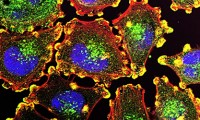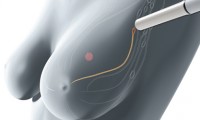-
Deep Learning used by Johns Hopkins Researchers to detect Pancreatic Cancer Early
- Source: Healthcare IT News
- 914
- August 20, 2018
-
New Blood Test Foresees Risk for Kidney Cancer and Survival Five Years before Diagnosis
- Source: EurekAlert
- 886
- August 14, 2018
-
Cannabis Compound may Augment Survival in Pancreatic Cancer
- Source: MedicalNewsToday
- 506
- August 11, 2018
-
Augmented Reality Holds Potential in Cancer Treatment
- Source: The Verdict
- 692
- August 8, 2018
-
Silencing Protein could Enhance Immunotherapy Efficacy in Cancer Tumors
- Source: MedicalXpress
- 732
- August 2, 2018
-
$7.6M Granted to SkinVision to Expand Skin Cancer App
- Source: MobiHealthNews
- 772
- August 2, 2018
-
Two Antipsychotic Drugs Destroy Cancer Cells
- Source: MedicalNewsToday
- 668
- August 1, 2018
-
Endomag Breast Cancer Device Gains FDA Approval
- Source: The Verdict
- 780
- August 1, 2018
-
Blood Test to Suggest Best Possible Treatment for Advanced Prostate Cancer
- Source: ScienceDaily
- 796
- July 26, 2018
your submission has already been received.
OK
Subscribe
Please enter a valid Email address!
Submit
The most relevant industry news & insight will be sent to you every two weeks.













